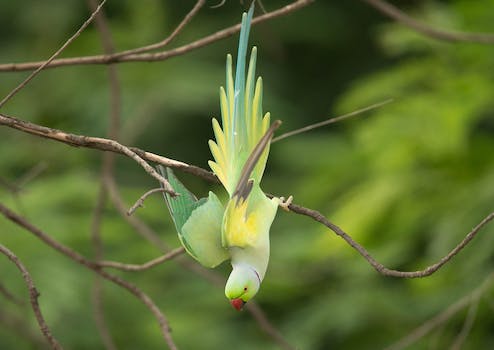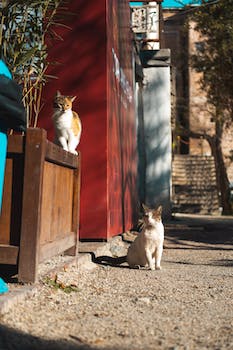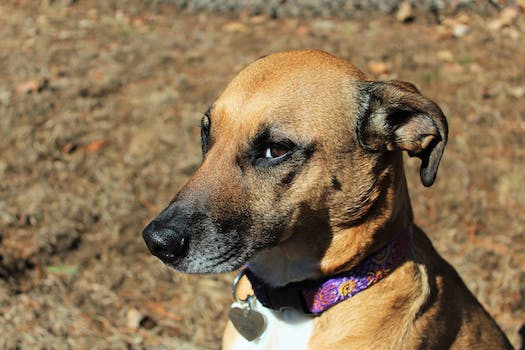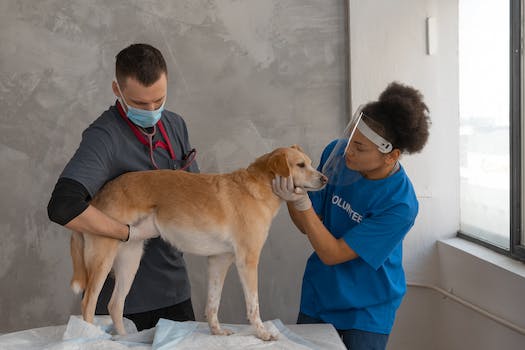

"Protecting Indonesia's Forgotten Animals: Advocating for Compassionate and Responsible Pet Ownership"
Introduction
Indonesia is home to a diverse range of wildlife, many of which are often overlooked and forgotten. These animals, including various species of birds, reptiles, and mammals, are often kept as pets without proper knowledge or care. The issue of responsible pet ownership is crucial in Indonesia, where the exotic pet trade is rampant and many animals suffer as a result. It is important to raise awareness about the needs and welfare of these forgotten animals and to promote responsible pet ownership practices to ensure their well-being and conservation.
The Plight of Indonesia's Abandoned Pets: A Call for Responsible Ownership
Indonesia is home to a diverse array of wildlife, but it is also home to a growing number of abandoned pets. These animals, often left to fend for themselves on the streets, face a harsh reality of hunger, disease, and abuse. The plight of Indonesia's abandoned pets is a call for responsible ownership, and it is a call that we must answer.
The problem of abandoned pets in Indonesia is not a new one, but it has been exacerbated in recent years by the rise of pet ownership. As more and more people bring animals into their homes, the number of pets being abandoned has also increased. This is often due to a lack of understanding of the responsibilities that come with pet ownership, such as the need for proper care, attention, and medical treatment.
Many pet owners in Indonesia are not prepared for the long-term commitment that comes with owning an animal. They may not realize the time, effort, and money required to care for a pet, and when the novelty wears off, they may abandon their animals. This leaves the pets to fend for themselves, often leading to a life of suffering on the streets.
The situation is further compounded by the lack of animal welfare laws in Indonesia. There are few regulations in place to protect the rights of animals, and those that do exist are often not enforced. This means that there is little recourse for abandoned pets, and they are left to suffer in silence.
However, there is hope. There are many organizations and individuals in Indonesia who are working to promote responsible pet ownership and to provide care for abandoned animals. These groups are working to educate the public about the responsibilities of pet ownership, and to provide resources for those who are struggling to care for their pets.
One of the key ways to promote responsible pet ownership is through education. By teaching people about the needs of their pets, and the commitment required to care for them, we can help to prevent animals from being abandoned in the first place. This education can take many forms, from school programs to public awareness campaigns, and it is an essential part of the solution.
Another important aspect of promoting responsible pet ownership is providing support for those who are struggling to care for their pets. This can include providing access to affordable veterinary care, offering resources for pet owners in need, and creating a network of support for those who are facing challenges with their pets.
Ultimately, the plight of Indonesia's abandoned pets is a call for responsible ownership. It is a call for us to take action, to educate ourselves and others about the responsibilities of pet ownership, and to provide support for those in need. By working together, we can create a better future for Indonesia's forgotten animals, and ensure that they are given the care and attention they deserve.
Indonesia's Overlooked Animals: How to Be a Conscious Pet Parent

Indonesia is home to a diverse range of wildlife, from the majestic Sumatran tiger to the playful orangutan. However, amidst the beauty of these creatures, there lies a forgotten population of animals that are often overlooked - the domestic pets. In a country where the concept of pet ownership is still relatively new, many animals are left to fend for themselves on the streets, leading to a growing population of stray dogs and cats. This is why promoting responsible pet ownership is crucial in Indonesia.
Being a conscious pet parent means understanding the needs and responsibilities that come with owning a pet. It's not just about providing food and shelter, but also ensuring their physical and emotional well-being. This includes regular veterinary check-ups, vaccinations, and spaying or neutering to prevent overpopulation. It also means providing them with love, attention, and exercise to keep them happy and healthy.
One of the biggest challenges in promoting responsible pet ownership in Indonesia is the lack of education and awareness. Many people are unaware of the importance of spaying and neutering, leading to an increase in the number of stray animals. Additionally, there is a cultural belief that animals are meant to roam free, which can lead to neglect and abandonment. To combat this, it's essential to educate the public on the benefits of responsible pet ownership and the impact it can have on the community.
Another issue is the lack of resources and support for pet owners. Many people in Indonesia do not have access to affordable veterinary care, which can lead to pets not receiving the necessary medical attention. This is where organizations and animal welfare groups can step in to provide support and resources to pet owners. By offering low-cost or free spaying and neutering services, vaccinations, and education on proper pet care, we can help reduce the number of stray animals and promote responsible pet ownership.
It's also important to consider the impact of pet ownership on the environment. With the growing population of pets, there is an increase in waste and pollution. As a conscious pet parent, it's essential to be mindful of the environmental impact of pet ownership and take steps to reduce it. This can include using biodegradable waste bags, choosing eco-friendly pet products, and properly disposing of pet waste.
In conclusion, promoting responsible pet ownership in Indonesia is crucial for the well-being of both the animals and the community. By educating the public, providing resources and support, and being mindful of the environmental impact, we can create a culture of conscious pet parenting. It's time to give these forgotten animals the love and care they deserve and work towards a future where every pet has a loving home. Let's be the change we want to see and lead by example as responsible pet owners. Together, we can make a difference in the lives of Indonesia's overlooked animals.
The Importance of Adoption: Giving Indonesia's Forgotten Animals a Second Chance
Indonesia is home to a diverse range of wildlife, but it is also home to many forgotten animals that are in desperate need of a second chance. These animals, often abandoned or neglected, are left to fend for themselves on the streets or in overcrowded shelters. However, there is hope for these animals through adoption and responsible pet ownership.
Adoption is a crucial step in giving these forgotten animals a second chance at life. By choosing to adopt, individuals are not only providing a loving home for an animal in need, but they are also helping to reduce the number of animals in shelters and on the streets. Adoption also helps to combat the issue of overpopulation, as many of these animals are not spayed or neutered, leading to an increase in the number of homeless animals.
Responsible pet ownership is also essential in ensuring that these animals are given the care and attention they deserve. This includes providing proper nutrition, regular veterinary care, and a safe and loving environment. It also means being committed to the animal for its entire life, as pets are not disposable items that can be discarded when they become inconvenient.
In Indonesia, there are many organizations and individuals working tirelessly to promote responsible pet ownership and to find homes for these forgotten animals. These organizations often rely on the support of volunteers and donations to continue their work. By supporting these organizations, individuals can help to make a difference in the lives of these animals.
One of the biggest challenges in promoting responsible pet ownership in Indonesia is the lack of education and awareness about the issue. Many people are not aware of the importance of spaying and neutering their pets, leading to an increase in the number of homeless animals. Additionally, there is a cultural stigma surrounding adoption, with many people preferring to buy purebred animals from breeders rather than adopting a mixed-breed animal from a shelter.
To combat this, it is important to raise awareness about the benefits of adoption and responsible pet ownership. This can be done through educational campaigns, social media, and community outreach programs. By educating the public about the importance of these issues, we can help to change attitudes and behaviors towards animals in Indonesia.
In conclusion, Indonesia's forgotten animals deserve a second chance at life, and adoption and responsible pet ownership are key in making this happen. By choosing to adopt, individuals can provide a loving home for an animal in need and help to reduce the number of homeless animals. Additionally, by being responsible pet owners, individuals can ensure that their pets are given the care and attention they deserve. Together, we can make a difference in the lives of these forgotten animals and create a more compassionate and caring society for all.
Tackling Pet Neglect in Indonesia: Education and Awareness for Responsible Care
Indonesia is home to a diverse range of wildlife, from the majestic Sumatran tiger to the playful orangutan. However, it is not just the exotic animals that need our attention. The country's domesticated animals, particularly pets, are often forgotten and neglected. Promoting responsible pet ownership is crucial in tackling this issue and ensuring the well-being of these animals.
In Indonesia, the concept of pet ownership is still relatively new. Many people acquire pets without fully understanding the responsibilities that come with it. As a result, animals are often abandoned or left to fend for themselves on the streets. This not only leads to suffering for the animals but also poses a risk to public health and safety.
Education and awareness are key in promoting responsible pet ownership. People need to understand that owning a pet is a long-term commitment that requires time, effort, and resources. Pets need proper nutrition, regular veterinary care, and a safe and loving environment. They also need to be spayed or neutered to prevent overpopulation and reduce the number of stray animals.
One way to raise awareness is through community outreach programs. These programs can provide information on proper pet care, the importance of spaying and neutering, and the consequences of neglect. They can also offer resources such as low-cost veterinary services and pet food banks to help pet owners in need.
Another important aspect of promoting responsible pet ownership is changing cultural attitudes towards animals. In some parts of Indonesia, animals are still seen as commodities rather than sentient beings. This mindset needs to shift to one of compassion and respect for all living creatures.
The government also has a role to play in promoting responsible pet ownership. Laws and regulations need to be put in place to protect animals from abuse and neglect. There also needs to be stricter enforcement of these laws to hold pet owners accountable for their actions.
One inspiring example of promoting responsible pet ownership in Indonesia is the work of animal welfare organizations. These organizations not only rescue and rehabilitate neglected animals but also educate the public on proper pet care. They also work with local communities to create a more humane and compassionate society for animals.
In conclusion, promoting responsible pet ownership in Indonesia is crucial in tackling pet neglect and ensuring the well-being of domesticated animals. Education and awareness are key in changing attitudes and behaviors towards pets. Community outreach programs, cultural shifts, and government regulations all play a role in creating a more responsible and compassionate society for animals. It is up to all of us to be advocates for these forgotten animals and to give them the care and love they deserve.
From Street to Safe Home: Supporting Indonesia's Animal Shelters and Rescues
Indonesia is home to a diverse range of wildlife, but it is also home to a growing number of abandoned and neglected animals. Many of these animals end up on the streets, where they face a life of hardship and danger. Fortunately, there are a number of animal shelters and rescues in Indonesia that are working tirelessly to provide these animals with a safe home.
One of the biggest challenges facing these organizations is the lack of awareness about responsible pet ownership. Many people in Indonesia are not aware of the commitment and responsibility that comes with owning a pet. As a result, animals are often abandoned when their owners can no longer care for them. This is why it is so important to promote responsible pet ownership in Indonesia.
Responsible pet ownership starts with understanding the needs of your pet. This includes providing them with proper food, shelter, and medical care. It also means ensuring that your pet is spayed or neutered to prevent unwanted litters. By taking these steps, pet owners can help reduce the number of animals that end up on the streets.
Another important aspect of responsible pet ownership is providing your pet with love and attention. Pets are social creatures that thrive on human interaction. By spending time with your pet and providing them with the attention they need, you can help ensure that they are happy and healthy.
Animal shelters and rescues in Indonesia are doing their part to promote responsible pet ownership. Many of these organizations offer educational programs that teach people about the needs of their pets. They also provide resources and support to help pet owners care for their animals.
In addition to promoting responsible pet ownership, animal shelters and rescues in Indonesia are also working to find homes for abandoned and neglected animals. These organizations rely on the support of volunteers and donors to help care for the animals in their care. By adopting a pet from a shelter or rescue, you can help give an animal a second chance at life.
Adopting a pet from a shelter or rescue is a rewarding experience. Not only are you providing a home for an animal in need, but you are also helping to reduce the number of animals on the streets. By choosing to adopt, you are making a difference in the lives of these forgotten animals.
In conclusion, promoting responsible pet ownership is essential to reducing the number of abandoned and neglected animals in Indonesia. By understanding the needs of our pets and providing them with the care and attention they deserve, we can help ensure that they have a happy and healthy life. Animal shelters and rescues in Indonesia are doing their part to support these animals, but they need our help. By adopting a pet from a shelter or rescue, we can help give these forgotten animals a safe home and a second chance at life. Let us all work together to support Indonesia's animal shelters and rescues and promote responsible pet ownership.
Q&A
1. What are some of Indonesia's forgotten animals?
Some of Indonesia's forgotten animals include native species such as the Javan rhinoceros, Sumatran tiger, and Bornean orangutan, as well as abandoned domestic pets like cats and dogs.
2. Why is responsible pet ownership important in Indonesia?
Responsible pet ownership is important in Indonesia to prevent the abandonment and mistreatment of pets, control the stray animal population, and protect native wildlife from the spread of diseases and competition for resources.
3. What are some ways to promote responsible pet ownership in Indonesia?
Promoting responsible pet ownership in Indonesia can be done through public education campaigns, stricter enforcement of animal welfare laws, and providing resources for spaying and neutering pets.
4. How does the abandonment of pets impact Indonesia's wildlife?
The abandonment of pets can impact Indonesia's wildlife by introducing non-native species that compete for resources, spread diseases, and disrupt the natural ecosystem.
5. What role do animal welfare organizations play in promoting responsible pet ownership in Indonesia?
Animal welfare organizations play a crucial role in promoting responsible pet ownership in Indonesia by rescuing and rehabilitating abandoned pets, advocating for stronger animal protection laws, and educating the public on the importance of proper pet care.
Conclusion
In conclusion, Indonesia's forgotten animals are in dire need of attention and care. Promoting responsible pet ownership is crucial in addressing the issue of neglected and abandoned animals in the country. Education and awareness campaigns, along with stricter regulations and enforcement, can help ensure that pets are treated with the respect and compassion they deserve. It is the responsibility of every pet owner to provide a safe and loving environment for their animals, and by doing so, we can create a more humane society for all living creatures.












